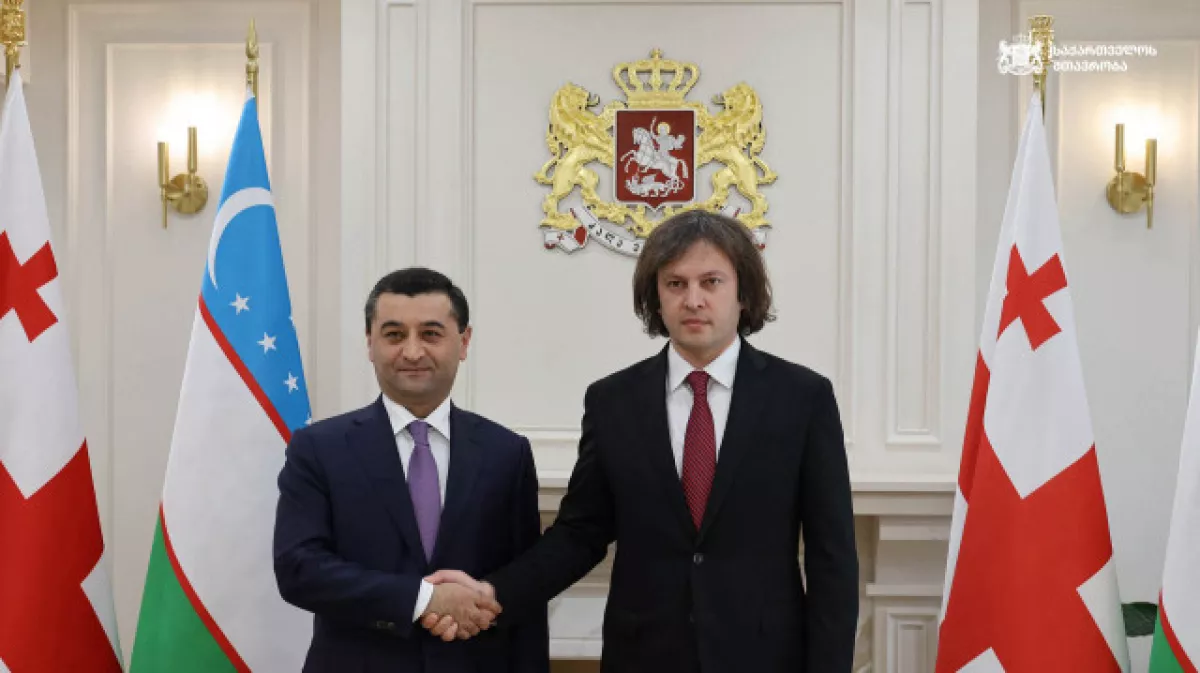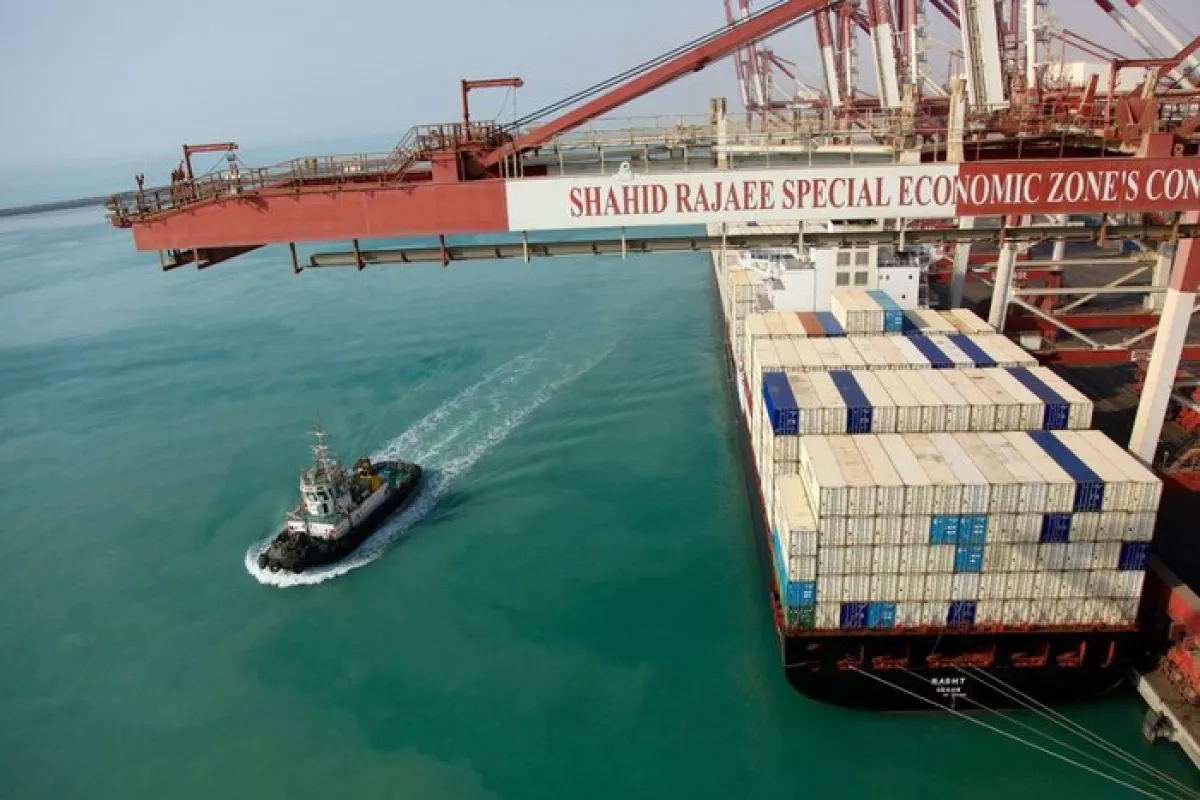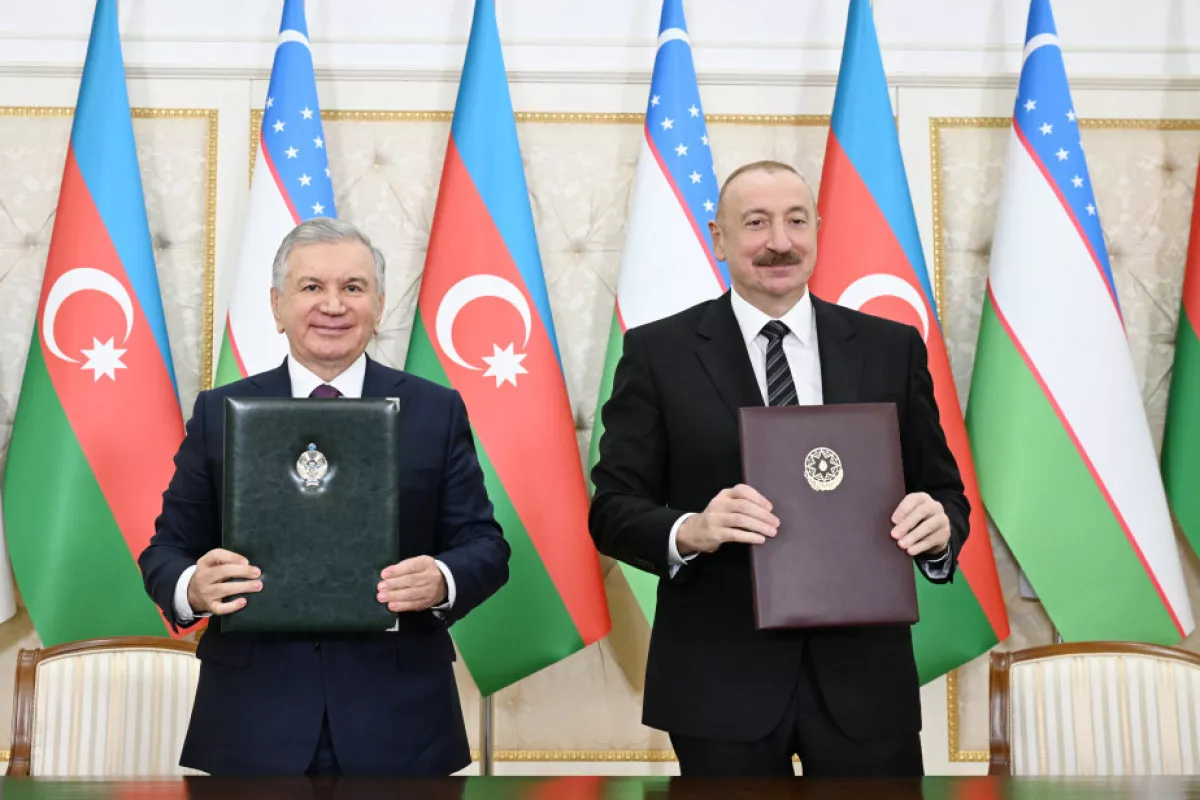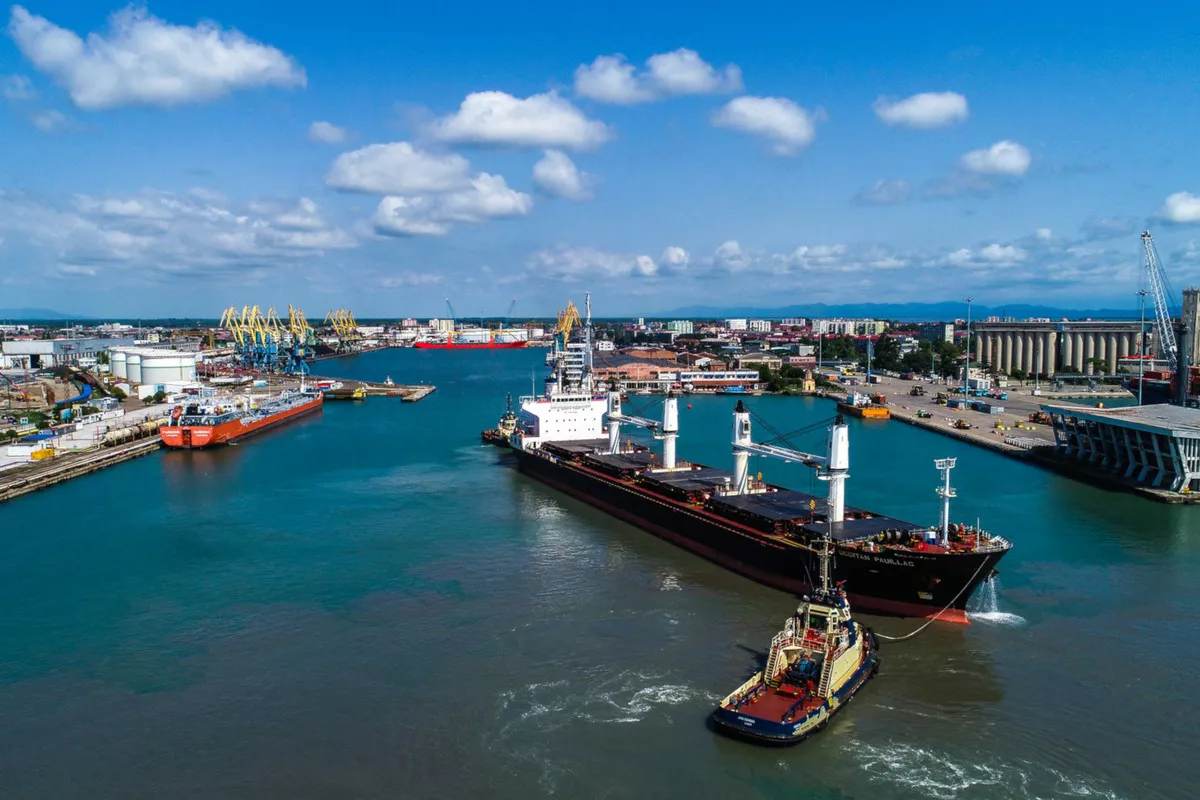Uzbekistan prioritises Middle Corridor as gateway to world’s oceans Bet on Baku and Tbilisi
A delegation from Uzbekistan, led by Foreign Minister Bakhtiyor Saidov, arrived in Georgia on July 8 for a two-day visit. The focus of the trip was the development of cooperation between the two countries within the framework of the Middle Corridor, which has the potential to emerge as the primary route for Central Asia’s most populous nation to access external markets.

"The meeting focused on the positive dynamics in Georgia-Uzbekistan relations, particularly in the areas of economy and tourism. Special emphasis was placed on deepening trade and economic cooperation, with both sides underlining the strategic importance of developing the Middle Corridor — a key transit route connecting East and West — and enhancing collaboration in that direction. The leaders also addressed regional security challenges and the importance of fostering peace and stability in the wider region," reads the official statement released by the Georgian government on the outcome of the Uzbek foreign minister's meeting with Georgia's Prime Minister Irakli Kobakhidze.
Matters regarding logistics and access to external markets remain among the most sensitive areas for Uzbekistan's development. The geopolitical instability in various regions of Eurasia only exacerbates these challenges. Having no direct access to the world's oceans, Uzbekistan is one of only two nations in the world that are considered to be "doubly landlocked", with the other being Liechtenstein. This means that in order to reach the open ocean, goods from Uzbekistan must cross at least two international borders. The republic's population stands at around 38 million today, with the country having an urgent need for reliable routes for economic engagement with external markets.
Historically, a significant portion of Uzbekistan's foreign trade has been conducted through the territory of the Russian Federation. To this day, Russia remains an important transit route, particularly in the context of trade with European countries.
At the same time, officials in Tashkent are carefully assessing the long-term risks of overreliance on any single route. Experts and the wider public in Uzbekistan have raised their concerns about the potential politicisation of logistics, including risks such as increased administrative controls over migrants or restrictions on trade flows. These worries are prompting the country to accelerate its search for additional, more resilient logistical alternatives.

Among the alternative routes, Uzbekistan is actively developing ties with Iran and Pakistan. A new logistics terminal had been in the works at Iran’s Shahid Rajaee Port, but the project was put on hold due to regional instability. The recent armed conflict between Iran and Israel became an additional factor prompting Tashkent to reconsider the priority of this route.
Plans to establish a logistics hub at Pakistan’s Karachi port are facing complications for several reasons, including the need to ensure reliable transit through Afghan territory, as well as the ongoing tensions between Pakistan and India. Despite these challenges, work in this direction continues: a recent Uzbek delegation visited Pakistan to assess the port infrastructure and discuss a project for the construction of a modern warehousing facility.
Under these conditions, the Middle Corridor, which runs through Azerbaijan and Georgia, has become Uzbekistan’s most reliable and geopolitically stable route to access global markets. It significantly reduces the country's dependence on other routes and strengthens its logistical autonomy.
In 2022, as transit through Russian territory became more complicated due to the military actions in Ukraine, the volume of Uzbekistan’s exports and imports transported via the Caspian Sea, Azerbaijan, and Georgia (through the ports of Poti and Batumi) increased by 72%, reaching volumes of 864,000 tons. In the years since, this figure has continued to grow and currently exceeds 1 million tons.

Notably, the visit of Uzbekistan’s foreign minister to Georgia came shortly after President Shavkat Mirziyoyev’s trip to Azerbaijan. During the meeting of the Azerbaijan-Uzbekistan Supreme Interstate Council held in Baku on July 2, 2025, Presidents Ilham Aliyev and Shavkat Mirziyoyev signed a series of agreements aimed at increasing the transit of Uzbek goods through Azerbaijan via the Trans-Caspian International Transport Route (TITR [the formal name of the Middle Corridor]), which connects Asia and Europe.
According to the agreements reached, Azerbaijan will assist Uzbekistan in the design and construction of cargo vessels for operations in the Caspian Sea, with the project estimated to cost $150 million. In addition, Azerbaijan has extended its discounted terms for the rail transport of containers: a discount of up to 70% will remain in effect until the end of 2026, further boosting the development of the Middle Corridor.
Uzbekistan’s Minister of Transport, Ilkhom Makhkamov, stated in an interview with the Uzbekistan 24 TV channel that vessels operating under the Uzbek flag will soon begin appearing in the Caspian Sea, significantly accelerating cargo deliveries along this route. The minister emphasised that the creation of a national fleet is a necessary response to the growing volume of freight traffic and the shortage of available ferries, which has led to waiting times of up to 30–40 days. Turkish partners are involved in the project and have expressed readiness to provide the necessary support.
The Central Asian country is also interested in developing its own port infrastructure on the Caspian Sea. Uzbek companies are currently leasing terminals at Caspian ports, but a feasibility study is in the works regarding the construction of a dedicated terminal at the Baku port.
However, the creation of terminals on the Caspian Sea and a fleet for intra-regional transport is only the first part of the strategy to strengthen logistics capabilities. It is also important to develop infrastructure at Georgian ports, including the possibility of establishing a national fleet to operate routes leading to the world's oceans. This work is expected to accelerate, and the visit of Uzbekistan’s foreign minister to Georgia may play a significant role in advancing these efforts.

It is worth noting that the corresponding memorandum on the construction and long-term lease of maritime terminals and warehouses in Georgian ports was signed back in July 2023. Uzbekistan began the construction of a multifunctional terminal at the port of Poti on the Black Sea coast in 2024. The facility will stretch over an area of 30 hectares, with a project cost of $18.3 million. The plans also envision the construction of storage facilities for frozen goods, general cargo, and grains.
In the first phase, a frozen goods storage facility with a capacity of 1,000 tons will be built. The second phase will involve constructing a covered warehouse with a total area of 5,000 square meters. The third phase plans to include a bulk cargo storage facility, as well as a terminal for oversized and container shipments. It is expected that this terminal will be used to send goods from Uzbekistan to Europe, as well as to facilitate reverse logistics — the supply of European goods to Uzbekistan and other Central Asian countries.
Thus, Uzbekistan stands on the threshold of an important phase in developing its foreign economic logistics. The Middle Corridor, running through the Caspian Sea, Azerbaijan, and Georgia, is poised to turn into a tangible tool for such a “logistical breakthrough.” In light of Uzbekistan’s involvement in developing the corridor’s infrastructure on its own territory, including the China-Kyrgyzstan-Uzbekistan railway project, Tashkent’s drive to rapidly establish logistics capacities in Azerbaijan and Georgia, as well as to form its own fleet and terminals on the shores of the Caspian and Black Seas, appears both rational and strategically justified.
By Vladimir Tskhvediani, Georgia, exclusively for Caliber.Az








